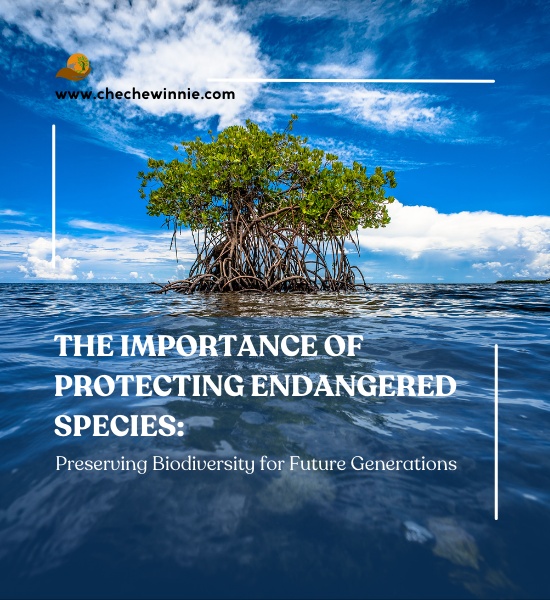As the world’s population continues to grow and human activities expand, the natural habitats of wildlife have been drastically altered and destroyed, resulting in the rapid decline of many species.
According to the International Union for Conservation of Nature (IUCN), an estimated one million animal and plant species are currently at risk of extinction. This is a sobering reality that highlights the urgent need for conservation efforts to protect endangered species and preserve the biodiversity of our planet.
Endangered Species: A Precious Part of Our Planet’s Ecosystem
Endangered species are those that are at risk of extinction in the near future if conservation efforts are not taken.
They play a crucial role in the ecosystem and the natural balance of our planet. When one species is lost, it can have a ripple effect that affects the entire ecosystem.
For example, if a predator species becomes extinct, its prey species may become overpopulated, leading to an imbalance in the ecosystem.
The Value of Endangered Species: Beyond Ecology
In addition to their ecological significance, endangered species also have cultural and economic value.
Many species are deeply ingrained in the cultural heritage of communities and are important for tourism and recreational activities, providing jobs and income for local economies.
Conservation Efforts: Protecting and Restoring Endangered Species
Protecting endangered species can help to preserve cultural traditions and provide economic opportunities for communities.
Endangered species conservation efforts involve a variety of approaches, including;
- Habitat restoration and protection
- Wildlife monitoring
- Captive breeding programs
- Public education and awareness campaigns.
The goal of these efforts is to prevent further population decline and promote species recovery.
The Link between Endangered Species and Human Well-being
Protecting endangered species is not just important for the well-being of individual species and ecosystems, but also for the survival and well-being of humans.
Biodiversity provides us with vital resources such as food, medicine, and clean air and water. Loss of biodiversity can lead to reduced availability of these resources and negatively impact human health and well-being.
Small Actions Make a Big Impact
It is the responsibility of all of us to protect endangered species and promote biodiversity conservation. We can do this by supporting conservation organizations, reducing our carbon footprint, practising responsible tourism, and advocating for policies that protect wildlife and their habitats. We can also make small changes in our daily lives, such as reducing our use of single-use plastics and supporting sustainable and ethical products.
In conclusion, protecting endangered species is crucial for the well-being of our planet and all its inhabitants, including humans. It is important to recognize the value of biodiversity and the need for conservation efforts to ensure that endangered species are preserved for future generations to enjoy.

